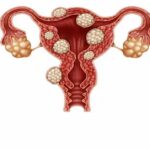It is a condition characterized by greater than normal blood loss. It occurs due to reasons such as excessive thickening of the inner layer of the uterus or hormonal imbalances during menstruation. excessive menstrual bleeding Symptoms include heavy bleeding, prolonged menstrual periods, large blood clots and fatigue. Treatment is based on determining the underlying cause and correcting the hormonal balance.
What Causes Excessive Menstrual Bleeding?

Infections in the uterus or pelvic area can also cause it. Surgical procedures, especially those involving the uterus or ovaries, can lead to Rarely, serious health problems such as cancer of the uterus, cervix or ovaries excessive menstrual bleeding causes it to happen. These are just some of the potential causes. If you are experiencing this condition, it is important to see a gynecologist and obstetrician. Because it is important to determine the underlying cause and receive appropriate treatment.
Symptoms of Excessive Menstrual Bleeding
It may last longer than your normal menstrual period or there may be heavier bleeding. You may notice larger or more blood clots than usual during your menstrual period. If the bleeding does not stop after your normal menstrual cycle or if there is a rapid transition from one cycle to the next, this may be a sign of the condition. Anemia may develop as a result of excessive blood loss. Symptoms of anemia may include fatigue, weakness, dizziness, and pale skin.
excessive menstrual bleeding Symptoms such as abdominal pain, pelvic pain or lower back pain may also frequently occur during the procedure. You may need to change pads or tampons more often than during your normal menstrual period. If you notice that you are bleeding faster than usual, this may be a symptom. There may be many different reasons underlying this situation. That's why it's important to consult a doctor if you're experiencing symptoms. Your doctor can evaluate your condition and recommend appropriate treatment.
Excessive Menstrual Bleeding Treatment Methods

Hysterectomy is the complete or partial removal of the uterus, but this is usually used as a last resort. A healthy diet and exercise regimen can help maintain hormonal balance. Reducing caffeine and alcohol consumption may also relieve excessive bleeding. Some people prefer alternative medicine methods such as herbal supplements and acupuncture. However, more research is needed on the effectiveness of such treatments. Because every situation is different, treatment options and effectiveness may vary from individual to individual. excessive menstrual bleeding If you are a survivor, consult a doctor. Consider appropriate treatment options.






